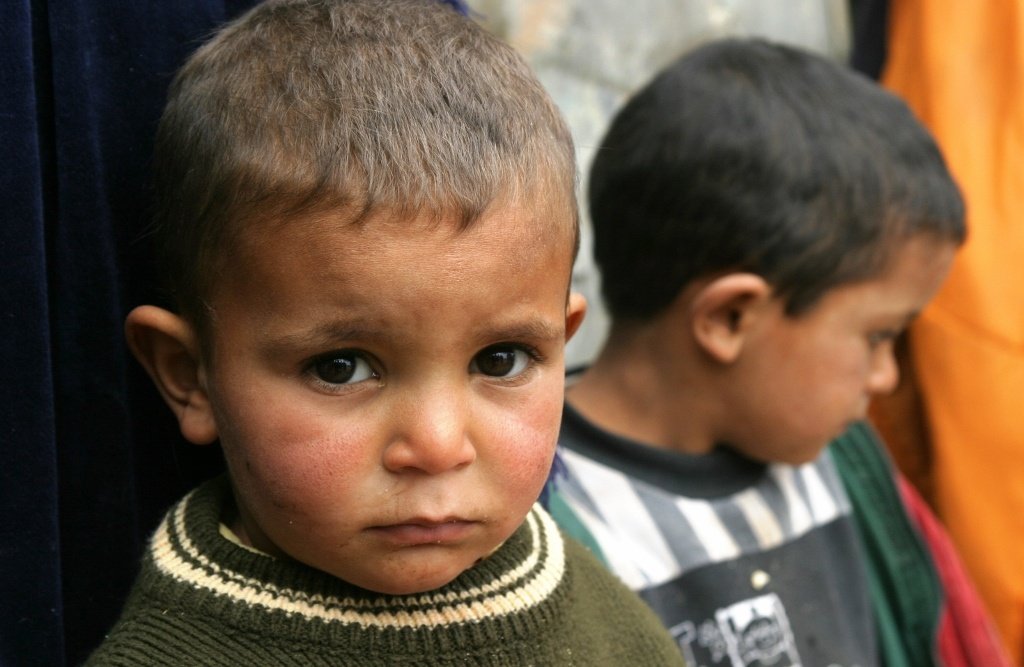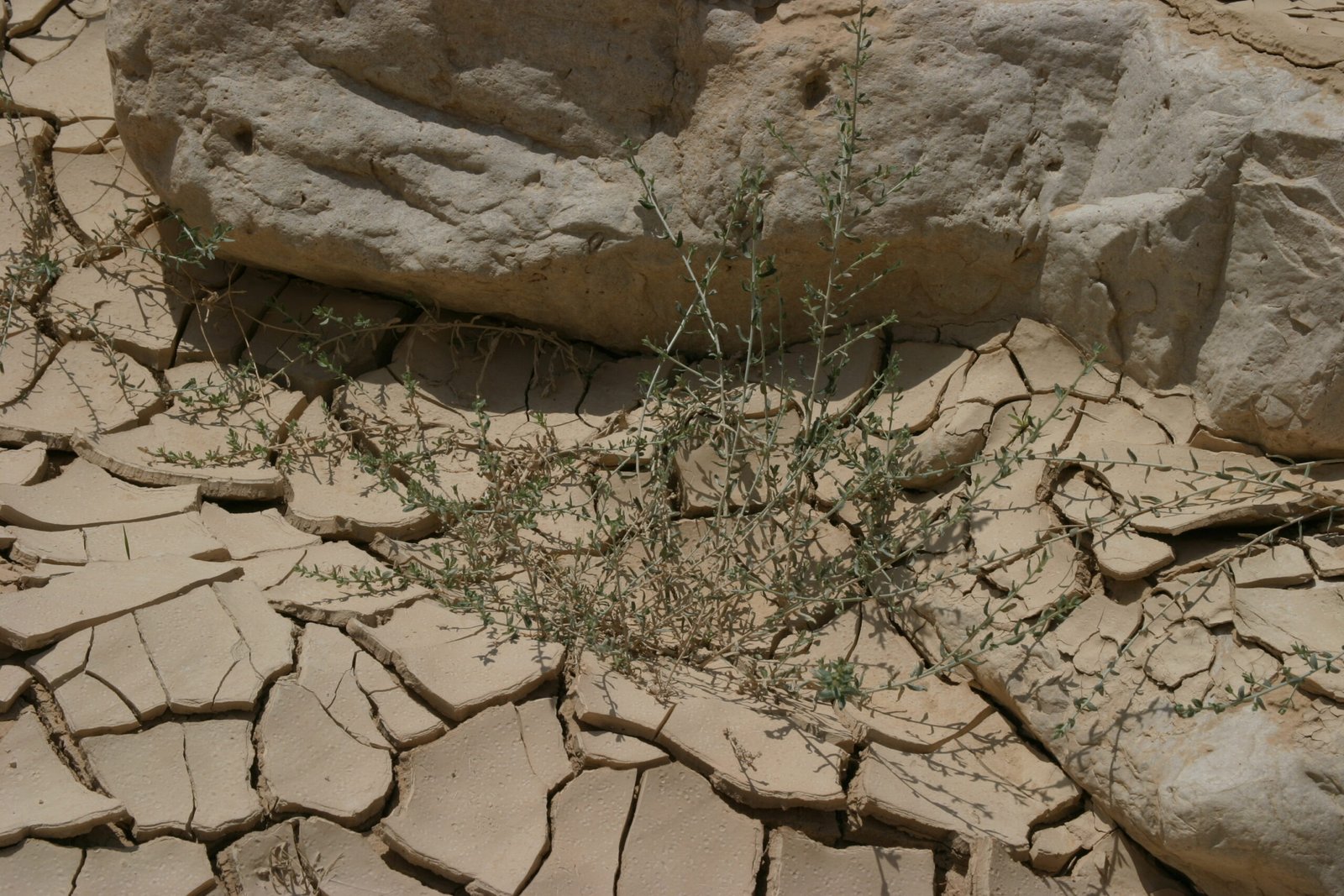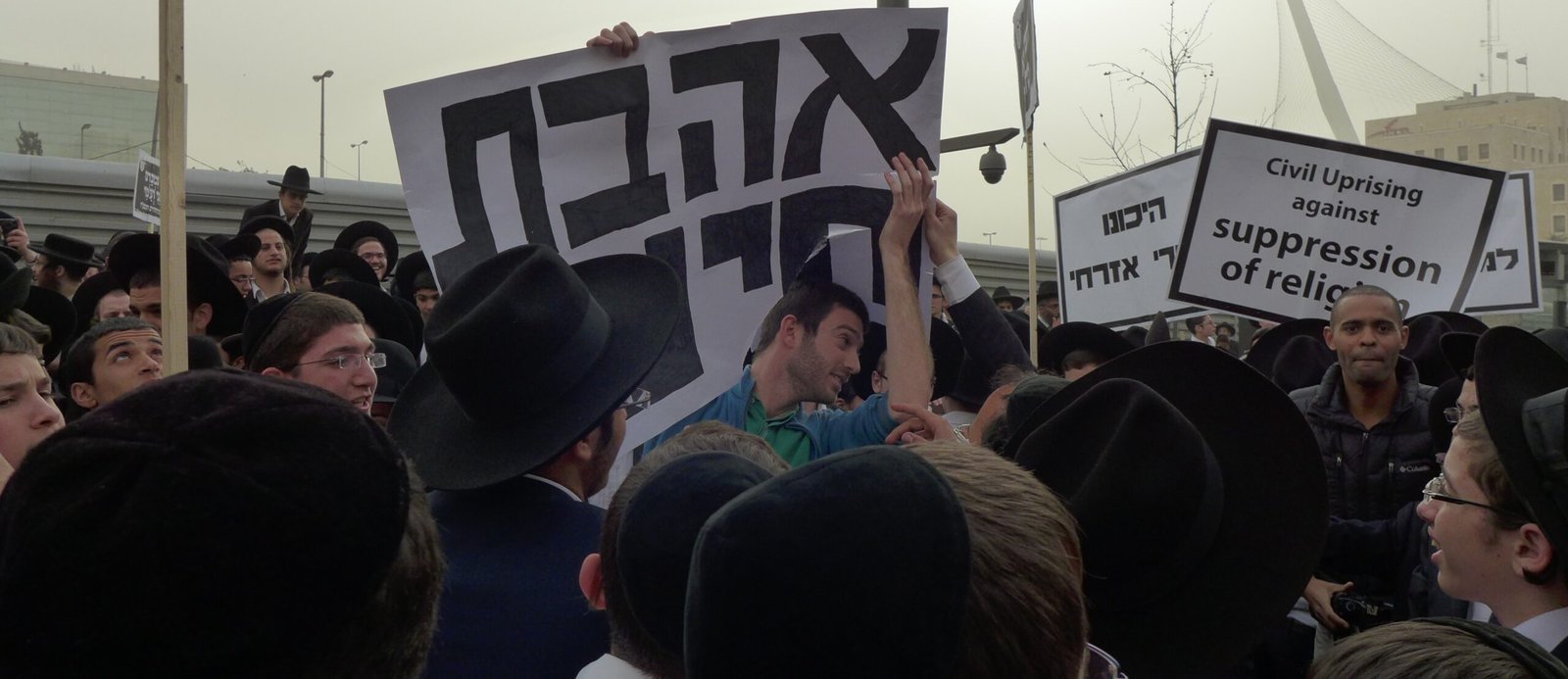Share This Story, Choose Your Platform!
The Midrash[1] Tehilim records how Rabbi Yehuda Bar Shimon, in Psalm 87:4, foresees a future in which Gentile nations will bring gifts to Jerusalem. On closer inspection, however, the Midrash then suddenly seems uncertain. Almost imperceptibly in a half-sentence, the rabbinic interpreter of Scripture takes a substantive turn: Are these non-Jews actually “pagans”? Are they really “ungodly”?
Undoubtedly, they are “peoples of the world” (אומות העולם/Umot Ha’Olam). But they pay homage to King Messiah, the King of Israel. As a result, “those who were born there in their countries” identify with “Israel.” Intuitively, Jewish interpreters sense what is said in the following “to Zion” about this amazing phenomenon (Psalm 87:5): To Zion it is said, …
Amos Hakham[2] observes the future tense in the words “it is said” (יֵאָמַר/Ye‘Amer)[3]. This describes a constant, “imperfect,” unfinished state in the present, like the “I call to mind,” “I remember” (אַזְכִּיר/Azkir) in the previous verse.
“A man and a man is born in her.
A messenger of joy
“Man man” (אִישׁ אִישׁ/Ish Ish; Deut 17:3,10,13) or “man and man“ (אִישׁ-וָאִישׁ/Ish VaIsh; Esther 1:8) means first of all “man by man,” “one by one,” “each one” or “all.” The expression “affirms a progressus in infinitum,” a “progressing on into the infinite”, “where one is ever added to another”.[4]
Metzudat David[5] sees in this verse a messenger proclaiming to Zion: “Behold, there is brought one man after another born in her.” The words of this rabbinic interpreter of Scripture recall the “Messenger of Zion” who in Isaiah 40:9 receives the instruction: “Go up onto a high mountain, you, who brings good news to Zion (מְבַשֶּׂרֶת צִיּוֹן/Mevasseret Zion). Raise your voice with power, you messenger of good news to Jerusalem (מְבַשֶּׂרֶת יְרוּשָׁלִָם/Mevasseret Jeruschalajim). Lift up [your voice], do not be afraid, tell the cities of Judah, Behold, your God!”
Return from exile
In the book of the prophet Isaiah, this joyful message to Israel is inextricably interwoven with the vision of the return of the people of Israel to the land of Israel, in which Gentiles play a decisive role. In chapter 49 the prophet depicts how Messiah will become “a light to the Gentile nations, to be My salvation up to the ends of the earth” (verse 6).
From this, a breathtaking scenario develops in verses 18-23: “Lift up your eyes all around! Look! All are gathered. They’re coming for you!” He continues to explain: “As truly as I live – prophetic saying of the Lord: All these you will put on like jewelry. You will bind them to you like a bride” – ‚like a kalah‘ (כַּכַּלָּה/KaKalah), a fulfillment, a ‘perfection’ that makes complete that which is imperfect, that perfects which is unfinished. “Your desolate, ruined and devastated land will now become too narrow for your inhabitants. Those who devour you must give way. Once again the children of your childlessness will say into your ears: This place is too narrow for me. Make room for me to settle down!”
The depressed people of God
For all his enthusiasm, however, this ambassador does not ignore reality. He is aware of the dejection, the condition of the scattered and humiliated people of God and knows: “But you will say in your heart: Who gave birth to those for me? After all, I am childless, lonely, displaced and outcast! Who is supposed to have raised these people? Look, I am left completely alone! Where do all these people come from?” A few breaths earlier, in verse 14 of the same chapter 49, “Zion” had shouted all her frustration and disappointment to the world: “The Lord has forsaken me! The Lord has forgotten me!”
In response, the prophetic messenger had merely assured that God could never forget His people – any more than a mother could forget the child at her breast (verse 15). Now, as an explanation for his cheerful optimism, from verse 22 on, the prophet is allowed to sketch the vision of a scenario in which Jews and Gentiles, Israel and non-Jews together go up to the land of Israel: “Thus says the Lord God: Behold, I raise my hand to the gentile peoples, toward the nations I raise my banner. Then they will bring your sons in their arms, your daughters they will carry on their shoulders. Kings will be your adoptive fathers and their princesses your foster mothers. With the nose on the ground they will pay homage to you – they will worship you! – and lick the dust of your feet. Then you will realize: I am the Lord, those will not be put to shame who hope in Me!”
Princesses and kings pay homage to Israel
It is interesting to note that the humble homage of the gentile “kings” and “princesses” plays a key role in the spiritual awakening of the people of Israel.
The Midrash explains the phrase “one after another born in you” in Psalm 87:5 – just as Rashi did before – with reference to Isaiah 66:20: “They will bring all your brothers from the gentile nations.” And the Malbim[6] knows: “Zion, with her individual limbs, resembles a living being. If even one limb is missing, it is a disability, a deficiency of the whole body. Therefore, ‘one man after another’ completes the perfection of the whole. If even one is missing, you feel that lack throughout the whole.”
Not a single one may be missing
The attitude of the Messiah Yeshua is visible here, who leaves the whole flock because of a single lost sheep; who turns the whole house upside down because of one single lost coin (compare Luke 15:1-10). If even one link in the chain is missing, if “man and man” are not really lined up, the entire chain is destroyed. Therefore, Paul knows that one day “all Israel” will be saved (Romans 11:26).
Radak[7] understands the “a man and a man” (אִישׁ וְאִישׁ/Isch VeIsch) of Psalm 87:5 as “Israel, that is, priest and Levite,” but then immediately again consults Isaiah as an interpreter. The prophet continues in chapter 66 quoted above, writing in verse 21 about the gentiles who bring Israel back to the land as a “minchah” (offering, votive gift) to the Lord: “From them also will I take priests and Levites” – namely, from those who bring and from those who are brought.
From Creation to New Creation
Rabbi Moshe Alshich of Tzefat[8] sees the basis for all this in the beginnings of creation when he asks the rhetorical question: “Are not all nations descended from the first man?” With reference to a statement of the Rambam[9], Alshich connects the creation of man with the temple in Jerusalem: Adam, the first man, was created “from the place of the altar!” From which he concludes: “If this is so, then all the children of the world were born in Zion.”
Neo-Orthodox Rabbi Samson Raphael Hirsch, influenced by European Romanticism and the Enlightenment, declared on Psalm 87:5: “Zion is the mother of every great spirit that has ever lived and worked in Israel. Indeed, today we can say of all the great spirits that have labored for the true education and enlightenment of mankind even beyond the confines of Israel that, whether they know it or not, their spiritual cradle stood in Zion. It was sparks from the Word of Zion that inspired their spirits and emotions and consecrated them to be God’s messengers among mankind.”[10]
Birth from water and spirit
Christian commentators see in this context a first allusion to the πολιτεία τοῦ Ἰσραὴλ/politeia tou Israel, “the citizenship of Israel,” which Paul mentions in Ephesians 2:12. This “Israeli citizenship” presupposes a spiritual change, “which, regarded from a New Testament point of view, is the new birth out of water and the Spirit”[11] (John 3:5).
British theologian Derek Kidner emphasized that these people cannot be “mere proselytes.” They were “born in Zion” and may point to it – just as Paul was able to emphasize that he had acquired his Roman citizenship by birth (compare Acts 22:28). The fact that “one by one” is born in Zion actually indicates family ties, a kinship relationship[12] – among those who are born by the same mother, just as between those who are born and Zion. Kidner concludes: “This is the gospel age, no less.”[13]
[1] The term ‘midrash’ (מדרש) is derived from the Hebrew root ‘darash’ (דרש), which means ‘to seek,’ ‘to ask.’ So, ‘midrash’ is literally ‘research,’ ‘study,’ ‘interpretation,’ ‘teaching,’ but is used here as a comprehensive term for rabbinic interpretation, which was passed on orally in the ancient world, later in written form. As a literary genre, the ‘midrashim’ as an interpretation follow the biblical text, whereas the ‘talmud’ deals with substantive issues and is ordered accordingly. The “Midrash Tehilim” is the interpretation of the Book of Psalms.
[2] 1921-2012, became known in Israel as champion of the first Israeli and worldwide Bible quiz. His handicapped father, Noah Hakham, was a Jewish Bible teacher who had moved from Vienna to Jerusalem in 1913. He had not sent the only son to a public school for fear of a speech impediment. Rather, he himself had trained him in extremely poor conditions. The Bible quiz in August 1958 revealed Amos’ genius and established his legendary career as interpreter of Scripture. His expositions are only available to me in Hebrew.
[3] עמוס חכם, ספר תהלים, ספרים ג-ה, מזמורים עג-קן (ירושלים: הוצאת מוסד הרב קוק, הדפסה שישית תש”ן/1990), קכו.
[4] Compare C.F. Keil und F. Delitzsch, Psalms 84-150, Commentary on the Old Testament vol.5/3. Translated by Francis Bolton (Peabody, Massachusetts/USA: Hendrickson Publishers, 1986), 20.
[5] A Bible commentary by David Altschuler, who lived in Javorov in Galicia in the 18th century. While his interpretation “Metzudat Tziyon“ explains individual words, “Metzudat David” illuminates the meaning of the text.
[6] Meir Leibusch Ben Yehiel Michael Weiser (1809-1879) came from the Ukraine and worked as a rabbi, Talmudist, biblical expositor and preacher. During his time as rabbi in Kempen, Posen, (1845-1859) he was nicknamed “Kempner Maggid”. As a relentless opponent of the reform movement and the Jewish Enlightenment, the Malbim came into conflict with Jewish and non-Jewish authorities, was slandered and arrested. He officiated as chief rabbi of Romania, Königsberg and Mecklenburg. His biblical interpretation focuses on the “depth of language” and the “basic meaning of the text” “based on precise linguistic rules.”
[7] Rabbi David Ben Yosef Kimchi (1160-1235), the so-called “Radak”, was the first among the great exegetes and grammarians of the Hebrew language. He was born in Narbonne, southern France. His father died early, so David was brought up by his brother Moshe Kimchi. Radak permitted philosophical studies only to those whose faith in God and the fear of heaven were firmly established. Publicly he dealt with Christians and attacked primarily their allegorical interpretation of Scripture and the theological claim to be the “true Israel”.
[8] 1507/08-1593, also called “the holy Alshich”, came from Adrianople, the Turkish Edirne, not far from today’s border triangle Turkey-Bulgaria-Greece, where he studied at the Talmud school of Rabbi Josef Karo. In 1535 he emigrated to the land of Israel, where he settled in Tzefat in the Upper Galilee. When his teacher Josef Karo followed him a year later, he was already one of the rabbinical judges in the city. Subsequently, Alshich distinguished himself as a preacher and interpreter of the Bible and the Talmud. According to a legend, his son was kidnapped as a child and became a Muslim. Alshich is buried in Tzefat, where an old synagogue in the Old City still bears the name “Beit HaKnesset HaAlschich HaKadosch”.
[9] Rabbi Moshe Ben Maimon (1135/1138 1204), also called “Maimonides,” was born in Cordoba, which is now in Spain. He came from an ancient rabbinic family that bore the name “Ibn Abd Allah”, “Ben Ovadia”, and traced its roots back to King David through Rabbi Yehuda HaNasi, who compiled the Mishnah in the 2nd century CE. In 1148 the family fled from persecutions to North Africa. After ten years of wandering, they settled in Fes, Morocco. But Muslim hatred of Jews did not let them rest. Thus, in 1165, the family finally arrived in Acre in the Land of Israel, where at that time was a large Jewish community. Eventually, however, the Rambam’s family settled in Egypt, where Rabbi Moshe Ben Maimon made it to “Rais al-Yahud,” head of the Jewish community. As outstanding physician, he gained great influence at the royal court. The reputation that this interpreter of Scripture and Talmud, philosopher and physician enjoys in Judaism to this very day is best expressed by the proverb: “From Moses [who received the Torah at Sinai] to Moses [Ben Maimon], no one stood up like Moses.”
[10] Samson Raphael Hirsch, The Psalms, rendered into English by Gertrude Hirschler (Jerusalem/New York: The Samson Raphael Hirsch Publication Society. Feldheim Publishers, New Corrected Edition 1997), 114.
[11] C.F. Keil und F. Delitzsch, Psalms 84-150, Commentary on the Old Testament vol.5/3. Translated by Francis Bolton (Peabody, Massachusetts/USA: Hendrickson Publishers, 1986), 19.
[12] עמוס חכם, ספר תהלים, ספרים ג-ה, מזמורים עג-קן (ירושלים: הוצאת מוסד הרב קוק, הדפסה שישית תש”ן/1990), קכו.
[13] Derek Kidner, Psalms 73-150, TOTC 14b (Leicester, England/Downers Grove, Illinois, U.S.A.: Inter-Varsity Press, 1975), 315.






















